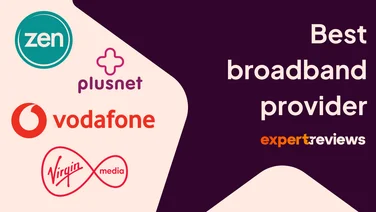To help us provide you with free impartial advice, we may earn a commission if you buy through links on our site. Learn more

- Still the fastest network
- Good service and reliability scores
- Useful perks and features
- High prices on phone contracts and SIM-only plans
- Average scores for customer satisfaction and value
- Roaming costs can be high
EE has seen a lot of change over the last few years, first shifting from BT’s premium, high-speed mobile network to becoming BT’s mobile arm, and now emerging as BT’s key brand for both mobile connections and broadband in the home. Its focus is still on speed, customer service and advanced features over low-cost pricing; you don’t go for EE because you think it is the cheapest, but because you think it is the best.
That’s backed up by EE’s performance in independent speed tests as well as some of the results in this year’s Mobile Network Awards survey. Where other major networks find themselves lurking near the bottom of most of our category results tables, EE consistently occupies a mid-table position and occasionally makes it onto the winner’s podium, even if it doesn’t come away with any of the first place prizes.
The smaller, cheaper virtual networks beat EE on our Overall results, and not all of EE’s customers are satisfied. While 41% of users would actively recommend EE to others, 13% would discourage them from signing up. That puts EE ahead of Three, O2 and Vodafone, but behind Sky Mobile and Tesco Mobile and even further behind Smarty, Giffgaff and Lebara. Some of this may come down to higher expectations, as users tend to be more forgiving when they’re not paying a premium price.
EE review: What do you get?
EE sells a wide range of smartphones both SIM-free and on monthly contracts, covering everything from budget models to value-packed mid-rangers and high-end flagship phones. SIM-free handsets can just be purchased outright, or on a fixed-term contract with 0% APR. Meanwhile, the same phones can be taken on a flexible Pay Monthly contract, with your choice of 24-month or 36-month contract terms and SIM plan. EE Broadband customers get a discount, while there are additional savings if you’re adding a line to an existing EE account.
EE tends to be fairly expensive for Pay Monthly plans. At the time of writing, an iPhone 17 with 150GB of data would cost you £71.86/mth over 34 months plus £30 upfront. The same deal on Three would cost you £16 less per month, while O2 and Vodafone would both be cheaper. A Samsung Galaxy S25 comes in at £66.86/mth; £8 more than it would cost on Three.
EE is also comparatively pricey when it comes to SIM-only plans. Even its cheapest deal – 50GB of data with no extras – costs £18, while its Full Works and All Rounder bundles can cost north of £40/mth. There are some decent deals, including some limited time offers, and EE has some tempting extras on the Full Works and All Rounders bundles that might save you money on subscriptions should the numbers all add up. Right now you can find its Unlimited Essentials package with uncapped data for a reasonable £23 on a 24-month contract, though it comes with a 100Mbits/sec speed limit. It’s all a question of whether you feel EE’s services are worth a little extra – and sometimes more.
Judging by its scores in the Value awards category, EE’s customers generally feel that they are getting good value for money. 87% say they’re satisfied with the network on this count, and only 3% are dissatisfied. Tesco Mobile, Smarty, Giffgaff, Sky Mobile and Lebara all score higher, but this is a respectable result for EE.
EE review: Customer service
EE usually does better than the other major network operators on customer service, and that hasn’t changed in this year’s survey. 82% of customers say they’re satisfied or very satisfied with service and support, while only 6% are dissatisfied, putting EE neck and neck with Vodafone and well ahead of O2 and Three.
EE also scored well in Ofcom’s most recent Comparing customer service survey, with above-average levels of customer satisfaction on the overall service and signal strength, and fewer than average numbers of complaints per 100,000 customers. Average call waiting times and call abandonment rates are higher than they should be, though, so there’s still room for improvement.
EE review: Coverage, reliability and speed
EE’s 4G network covers 99% of the UK population, while its 5G network is now available to more than half of the UK population, with plans to put it in reach of over 41 million people by spring 2026.
EE did consistently well in this year’s Reliability category, scoring 77% for web browsing, 74% for streaming and 65% for online gaming when customers were asked if their mobile connectivity met their performance expectations. Only Sky Mobile and Tesco Mobile scored higher. EE also got reasonable results for performance. 91% of users were satisfied with the speed of their connection and 82% felt confident or very confident of having a fast enough connection for demanding tasks. Giffgaff, Smarty and iD Mobile all scored higher while EE was neck and neck with Sky Mobile and Lebara. O2 and Three were 7% to 9% behind.
EE has triumphed in RootMetrics’ independent speed tests that it’s almost getting boring, but when you look at the figures it’s no surprise. Again this year it won more tests in more locations than any other network, and posted a UK-wide median download speed of 110.8Mbits/sec, more than double the next-fastest result from Vodafone, 48.4Mbits/sec. Three reaches higher peaks on 5G performance, with its fastest 5% of connections reaching 916.8Mbits/sec, but EE’s 730.1Mbits/sec is nothing to be sniffed at, and it wins on Median 5G download speeds, with 241.2Mbits/sec to Three’s 217.3Mbits/sec. For most people in most places, EE is as fast as it gets.
EE review: Roaming
EE only offers free EU roaming as part of its All-Rounder and Full Works plans. Outside of those you can pay £2.59 per day or £15 per week to use your UK allowances as if you were at home, subject to a 50GB fair use cap. Outside Europe, costs can vary. You’re looking at £5 for a day pass or £25 for a week pass in Australia or the USA, but £7.50 and £37.50 if you’re headed to Colombia or Kenya. What’s more, the 7-day option is unavailable in some territories, including Brazil, Morocco and Japan.
EE finished mid-table in the Roaming category of our awards, coming in above Vodafone and Three but below O2, Sky Mobile and Tesco Mobile. If you plan to spend a lot of time abroad, you need to look at its more expensive plans or think about another network.
EE review: Other features, services and spending caps
EE brings some useful perks to the table, including a Data Gifting feature where you can give some of your data allowance to other users on the same account. This is controlled by the main contract holder, so you needn’t panic about your offspring splurging all your family data playing Fortnite on the go.
EE also provides Wi-Fi connectivity and calls on the London Underground, which is a definite bonus if you live or work in the capital. Finally, some plans include an inclusive extra, giving you free Apple Music or Apple TV for your iPhone or free Netflix Standard or Google One services. The most expensive Full Works packages even throw in extras like Netflix Premium, Apple One or Xbox Games Pass Ultimate.
Despite all these goodies, EE didn’t score as high in our Perks award category as Sky Mobile or Vodafone. Indeed, it came bottom of our smaller results table covering multi-user plans. Still, it does support spending caps, which you can set up with a text message or configure through the Website.
EE review: Verdict
EE once again excels on services and speeds, and even does better than its big network rivals on customer support. Yet it’s still not getting the customer satisfaction scores you might expect, while its value scores are still in the second tier. It’s still the network to go for if you prize connection speed and solid coverage over price or anything else, but also an expensive choice. For some, the performance is worth it, but it’s not the only service offering good speeds and reliability – and it’s definitely not the cheapest.






